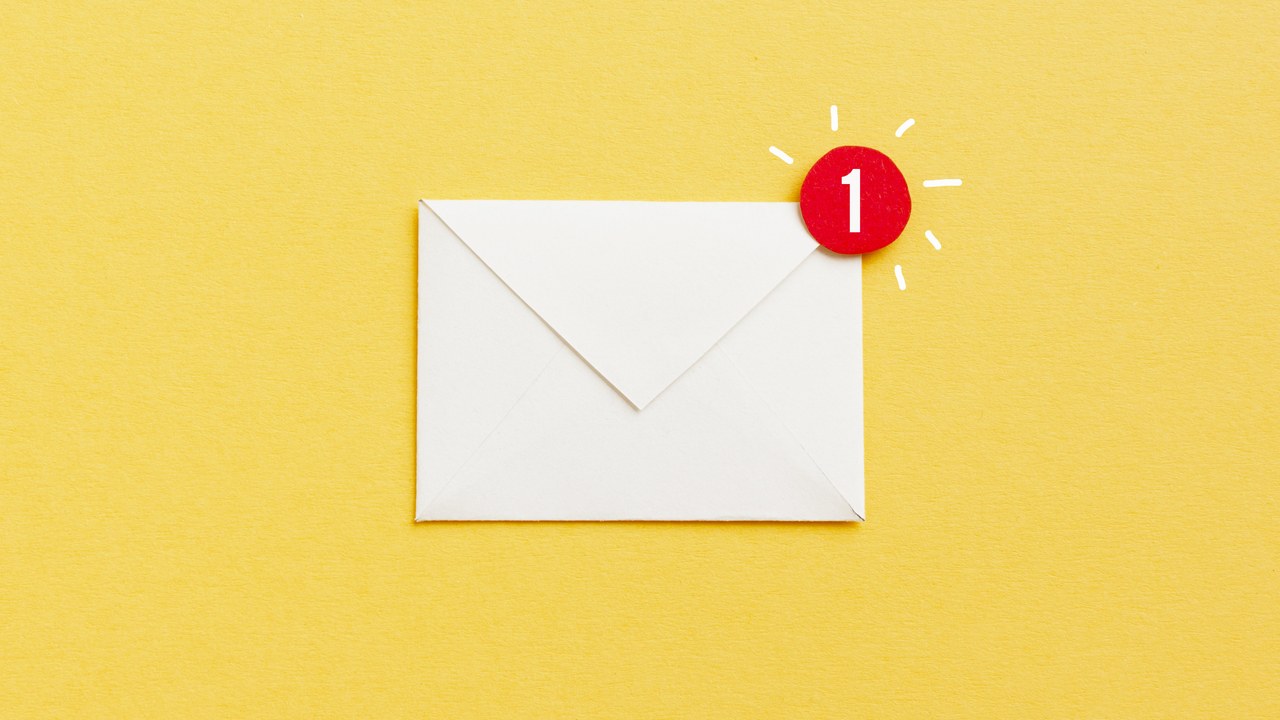I Stopped Writing 'Sorry for the Delay' in Emails, and It Changed Everything

For a long time, I derived a sense of pride in my ability to organize an email inbox. The little red numbers in the corner of my app were a thorn in my side; I did everything I could to avoid them. I promptly responded to messages and, for a while, even managed to keep my unread emails at zero. Sure, some of these habits had to do with my anxiety, but there was also a part of me that had internalized the idea that immediate responses were not just a professional nicety, but an obligation. When an email slipped through the cracks, I felt compelled to apologize.
Like most women, I have been conditioned to ask for forgiveness since I was a little girl. Recently, I even apologized to a man after he ran into me on the sidewalk. Saying sorry is a force of habit, a way to “make up for” the trouble I’ve caused just for taking up space as a human in the world.
But the tic is more than a product of female socialization. As someone who has been self-employed for most of my career, my livelihood depends on emails. If I don’t stay on top of them, opportunities seem to slip away as quickly as they come. More than once, a handful of hours has meant the difference between securing and losing a client. To cope, I became obsessed with rapid correspondence—and when I didn’t measure up, I tapped out a phrase familiar to millions of conscientious strivers around the world: “So sorry for the delay.”
But last month, my relationship to my inbox completely changed.
In June, I left my staff writer job in preparation for an international move. But while emptying our Brooklyn apartment—donating furniture we had just purchased and books we’d collected over a decade—my partner was suddenly hospitalized and spent days in the intensive care unit. For a scary period, their literal survival was our only concern. That same week, I underwent an urgent, costly surgery that physically wiped me out. And then, while still in recovery, a close family member unexpectedly passed away.
During that time, anything not directly tied to my emotional survival faded into the background; work emails, included. Although I did what I could to keep clients and collaborators informed of what was happening, I eventually found myself staring at a ballooning inbox. Some emails sat unanswered for weeks—I simply didn’t have the energy to respond.
I’ve heard it said that expressing gratitude can be better than apologizing; I once saw a comic by Yao Xiao that beautifully illustrated the concept. Staring at the blinking cursor inside one of hundreds of emails I’ve had to compose over the past few weeks, I’ve reflected a lot on this idea. And so while part of me still wants to ask forgiveness, I’ve started to substitute an alternative: “Thank you for your patience.”
Modern work culture doesn’t make enough space for people’s humanity. Though it’s hard to pinpoint what exactly caused that—late capitalism, social media, lack of boundaries—our relationship to work, and specifically work emails, is resulting in serious psychological consequences.
Whether it’s the expectation of a response at all hours of the day or night, or that haunting feeling after deciding to wait until Monday to respond to a Saturday email, these habits are unhealthy. I still (ironically) have work to do when it comes to developing better boundaries with work, but the past month helped me set a new standard: I’ve stopped apologizing for delayed email responses.
